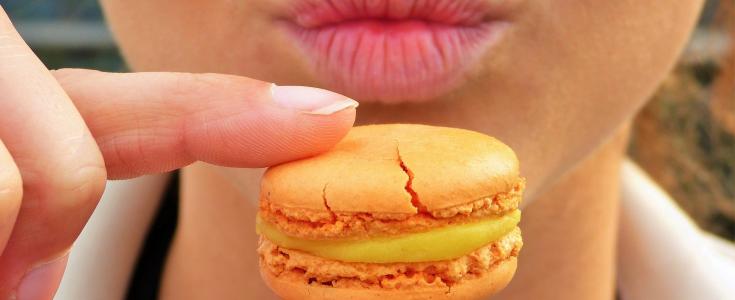It's True, Your Mood Can Affect Your Food
It is true that what we eat affects our mood but also true that our mood affects how our food is digested. Thoughts, beliefs, feelings, and our stress level all play a part in how well our body utilizes what we consume.
If you have ever eaten while anxious you might have experienced indigestion afterward; gas, cramps, and heartburn might plague you for hours. When stressed, our alarmed nervous system shuts down our digestive mechanisms. Blood flow is rerouted to our head, arms, and legs so we can fight or escape, even if there is nothing to wrestle or run from.
Eating when our gastrointestinal organs are closed-for-business typically results in regret. It may feel like the food we've eaten is a lump in our stomach, because it is. It sits in the dark waiting for our digestive juices to kick-in.
“Preserve and treat food as you would your body, remembering that in time food will be your body.” —B.W. Richardson
Effects of Anxious or Rushed Eating
When we are anxious, the nutritional value of any food we eat takes a dive. Calcium and minerals are lost. We burn calories more slowly as our cortisol, insulin, and cholesterol levels rise. Good intestinal bacteria kick the bacteria bucket. This is bad news not just for metabolism; it can compromise the immune system as well.
When pressed for time, we might grab a sandwich to eat while we work or drive to a sales call. Eating while rushed also increases our cortisol level and over time we lose our sensitivity to the pleasure provided by food. The brain notices this and thinks, “I haven’t received enough pleasure today so I need to eat more.” You may not hear your brain saying that, but you might eventually notice some extra pounds.
Remember this Chinese proverb: "The more you eat, the less flavor; the less you eat, the more flavor."
The Do's of Good Digestion
Food is assimilated best when we are relaxed. Eating in an atmosphere of good conversation, caring, and enjoyment is even more gastronomically friendly. We need to set aside time for eating, to not only be nourished but enjoy the flavor and texture of the food.
Eating well involves not just the body but our heart and mind, and is likely why people have gathered at mealtime for centuries. When we fully enjoy our meals we are less likely to require food-pleasure between them, and they provide us an opportunity to connect with the important people in our life.
Pleasure is part of good digestion. As Voltaire put it, “Nothing would be more tiresome than eating and drinking if God had not made them a pleasure as well as a necessity.”
Source: David, Marc, It’s Not Just What You Eat, But Who You Are
Photo: Pixabay






